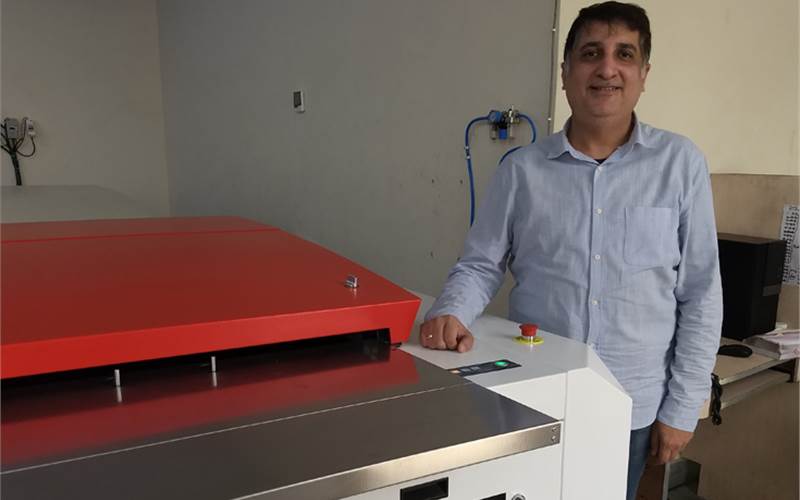Nutech gets Thermostar T9 HS for faster production
Faridabad-based Nutech Print Services has replaced its existing Screen thermal CTP with a Thermostar T9 HS thermal CTP device from TechNova Imaging Systems. According to Ravi Shroff of Nutech, the company went for the Thermostar T9 HS as it offers the speed of 40 printing plates an hour. “Since our existing CTP device was a decade old, the reliability of that machine would eventually become an issue,” Shroff added.
05 Jun 2019 | By Rahul Kumar
The investment is part of Nutech’s on-going drive of replacing its existing machines with faster ones. “To feed the newer generation of fast printing machines, you need faster production of plates as well so that the entire wheel spins well. We have added an array of finishing equipment to enhance the binding output as well,” Shroff added.
The company recently added a refurbished five-colour Ryobi press and two mono-perfectors from Komori to meet the strong print production demand that they have been experiencing in the last few years. To convert printed sheets into the final product, Nutech has also added machines across the post-press department, including two Heidelberg folding machines, a sewing machine from Aster, a Wohlenberg book binding line, and a foiling machine from Kluge, among others.
In pre-press segment, following the investment in the CTP device, Nutech is now planning to replace its existing CTCP device.
“The focus is on replacing machines either with refurbished or brand-new machines,” Shroff said. “As a company, we believe a machine less than five-years-old is perfect for us. Machine replacement entirely depends on the need. You need to balance the total capital expenditure: in the present scenario, everything can’t be bought brand new.”
The Thermostar T9 HS was purchased during PrintPack India 2019. “Since we have only used Screen CTPs since 2004 when we bought our first CTP, I was slightly apprehensive and so I visited other printing facilities to see the machine in running condition, asked about their experience, and was convinced about this was the right choice for us. The existing machine was a decade old and reliability would ultimately be an issue. We want to increase our printing capacity and before doing so, we need to increase capacity for plate production,” he said.
He added, “TechNova is a strong partner for us. We have traditionally had a good experience buying printing plates, chemicals, software, and other equipment and servicing as well from TechNova.”
On the difference between thermal and CTCP, Shroff said, “For very high-quality jobs, we go for thermal printing plates and for normal jobs, we use CTCP printing plates. CTCP technology has become much better over the last few years and around 70% of our jobs are easily produced on CTCP plates.”
Shroff said post the additions, the company’s production will increase by around 20% per annum. Also, consumption of printing plates may grow by around 10%.
He said the focus on education sector is very strong, and he sees a good growth in the Indian market, as both government and private parties are pushing hard in the segment.
“Uncertainties are not good for business,” Shroff said. “We have a clear focus on our product segment: books. Within books, we have focused on thin paper printing. Between a fourth and a fifth of our revenue comes from thin paper products. We are among the few printers in the country that can print four-color jobs on paper as low as 30-gsm.”
He insisted that if you find your niche in a particular segment, you can capitalize on it. “Thin paper needs a lot of specialization. It has taken us over 10 years to perfect the art of printing on such thin substrates. These papers are uncoated by nature and such paper doesn’t need any special coatings but you need extremely specialized printing inks for these papers which we got developed from our ink manufacturers through many years of R&D,” he added.
Shroff said his final responsibility is a healthy bottom line. “I have to make sure that whatever I buy must never become a burden for doing good business,” he said.












 See All
See All